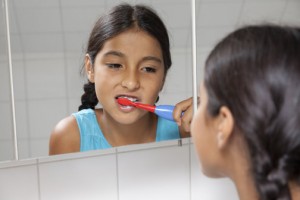The problems caused by poor mental health have been rising steadily up the health agenda, which is why a study that suggests taking part in the Scouts or Guides can help lower the risk of mental illness in later life has grabbed people’s attention.
Children who participate in these organisations, which aim to develop qualities such as self-reliance, resolve and a desire for self-learning, are likely to have better mental health in middle age, the findings show.

Scouting, which frequently involves being outdoors, also seems to remove the relatively higher likelihood of mental illness in those from poorer backgrounds.
The findings come from a lifelong study of almost 10,000 people from across the UK who were born in November 1958, known as the National Child Development Study.
Around one-quarter of study participants had been in the Scouts or Guides, and those were found to be around 15% less likely to suffer from anxiety or mood disorders, compared with others.
Researchers say their findings suggest programmes that help children develop skills such as self-reliance and teamwork, and encourage being active outdoors, may have lifelong benefits. Food for thought?









